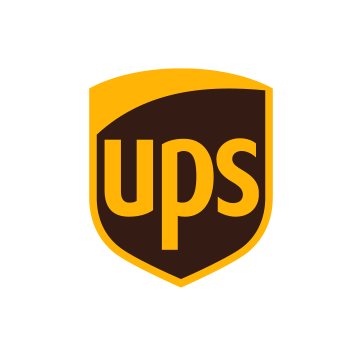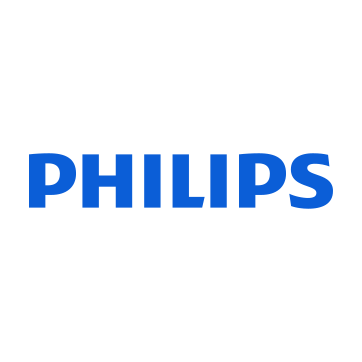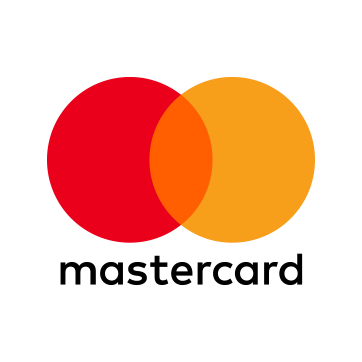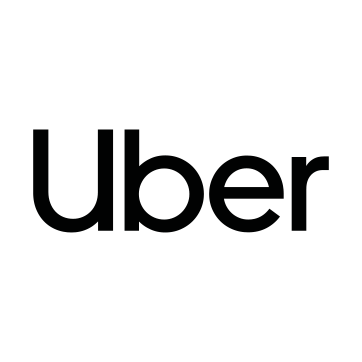VG NEWS
It is in the Public Interest to Know Who and How Influences Croatian Institutions
VG NEWS
It is in the Public Interest to Know Who and How Influences Croatian Institutions

Natko Vlahovic, Founder and CEO of Vlahovic Group, the first professional lobbying company in Croatia, and an accredited lobbyist at the EU Parliament, demystifies an activity that is still associated with secrecy.
Although lobbying in the USA has been a normal business activity for decades with its rules and regulations, and somewhat shorter in the EU, in Croatia it is a novelty that a good part of the public and officials still connect with something mysterious and obscure.
On what is lobbying, what is the situation in this sector in the EU and Croatia, we are talking with Natko Vlahovic, founder and director of the first Croatian professional lobbying company, which operated during the COVID-19 crisis, and which demystifies business lobbying in Croatia, and this year marks the 10th anniversary of its operations.
How did the lobbying business develop after Croatia’s accession to the EU and what did it mean for lobbying?
Joining the EU has pushed lobbying into a much more professional space for advocacy. EU legislation and all decision-making processes after joining the Union have become far more demanding and in the background is a deep understanding of political decision-making.
Today, serious lobbying requires you to know every detail of the transposition of EU legislation, all relevant institutions, analyze external factors that may affect policy, and of course lobbyists are expected to achieve results, and that is effective advocacy and influence on the issue.
Business operations are much more complex no matter what the sector is. Nowadays, this job requires in-depth expertise, analysis and a systematic approach to the topic you are working on. There are no quick fixes, and the job itself can be very sensitive because it is subject to various political changes.
It is important to point out that Croatian institutions that are being lobbied, such as ministries, Parliament, Government, agencies, are much more closed than European institutions and it is much more difficult to achieve a quality dialogue on an important topic or upcoming regulation.
Who lobbies in Croatia? Can we say we have a lobbying industry?
The internal analysis we made in Vlahovic group shows that around 130 million EUR is spent annually on interest advocacy in Croatia. Of this amount, almost the smallest share, less than 10%, refers to those who declare themselves as professional lobbyists or policy consultants most often hired by the private sector.
It is in our interest to affirm lobbying as a profession and to bring closer to the public and decisionmakers what, for whom and for what purpose we work. The largest share of this “lobbying market”, more than 50%, refers to national business organizations, economic interest associations, clusters, professional and foreign chambers whose main interest is to advocate and promote the interests of its membership.
They act in the public and political spheres with the aim of influencing the policies that concern them. For them, too, the European Transparency Register in Brussels requires registration for access to EU institutions, as well as for trade unions and the NGO sector, which we did not include in the analysis.
We estimate that economic entities in Croatia have expenditures in the amount of 40-53 million EUR for lobbying, either through the costs of in-house lobbyists they employ or through spending that money on various events and campaigns in the media with the help of PR agencies, and many law firms generate revenue by providing lobbying-related services as well..
According to our estimates, 130 million EUR is spent annually on interest advocacy in Croatia
Lobbying as an institutionalized activity came from the US. What is the situation in the EU, and especially in Croatia?
The US has taken full advantage of lobbying in both the public and private sectors for a good 150 years, although the first regulation came in the 1930s. American lobbying is very aggressive in our terms, but it is required in the relentless competition of the free market. There are a lot of interests that want to have the right information at the right time.
Brussels has also experienced a real renaissance in the last ten years. Every serious business organization has someone in charge of monitoring European affairs. It is a large and serious industry without which no decisions are made.
Croatian lobbying practices began to develop more seriously after joining the EU, as the importance of political advocacy became much more important to the private sector. As a new member, we had to introduce a lot of new laws that necessarily change market relations, which entails the activation of interests, and thus a certain level of analysis and lobbying.
Basically, it is only positive and good both for strengthening the capacity of our institutions and for the private sector that is still not agile enough in following key developments or does not react in time by expressing its policy position.
According to your estimates, at least in the EU, how much lobbying is aimed at politics today, and how much at business?
The essence of running a business is advocacy and fighting in the market where they try to regulate you in different ways and with different motives. The whole policy is to lobby different interests. Every decision made by an EU institution has been lobbied for months.
It is difficult to give a precise answer, but lobbying in Brussels for both business and the member states, the industry is worth several billion EUR. Trade and strong lobbying are expected among member states when it comes to political decisions in the EU institutions, but it is less clear how much is spent and what was obtained.
What is the situation with the regulatory framework for this in our country?
The Ministry of Justice and Administration announced the adoption of the first Law on Lobbying at the end of this year. This regulation has been long awaited and a working group has been formed to deal with this area.
It is expected that we will get a public register of all those who lobby in an organized way and try to influence the decisions of public authorities, this registration should be mandatory, it is in the public interest to know who influences Croatian institutions. I hope we can achieve that.
To what extent is lobbying recognized by the public and institutions as an activity, and to what extent do you still encounter prejudices about “hunting in the dark” or similar?
Decisionmakers must not allow themselves to work with “unverified” lobbyists, those who are unregistered or simply self-proclaimed consultants, as this puts them in an awkward and potentially problematic situation. This is one level of “protection”.
We in Croatia had quite a number of scandals where some kind of lobbying was mentioned, but in fact we had public officials who were corrupt and did their job catastrophically badly. Legitimate lobbying should be clearly separated from any corruption.
This is an area that must be constantly worked on, and the best way to improve it is the Law on Lobbying, which determines the basic rules of conduct.
How do you tell the difference between ‘lobbying as an activity’ and trying to influence some processes by pressure, trade in influence or ubiquitous myth?
Quite simply, attempting to influence some processes by trading influence or bribery is a criminal offense. And that should qualify as a crime, not lobbying. The person offering the bribe is a criminal, as is the person receiving it.
Lobbying never seeks a solution that is illegal, but tries to influence the political or legislative process with more or less success through argumentation, knowledge of the political process and an ethical and transparent approach. There is no reason to equate lobbying with the activities described in the Penal Code.
How much has lobbying become more important for Croatia with the accession to the EU, because most of the processes that affect our country are passed in Brussels?
National representatives in all three EU legislative levers participate in the EU legislative process through committees in the Commission, working groups in the Council and committees in Parliament. Each member wants to make EU regulations more favorable for their country, successfully or not.
For example, to lobby for the interests of Croatian agriculture means very close cooperation with our representatives in Brussels, and after the adoption of the EU directive to cooperate on the best solutions within the framework set by the directive.
The transposition of EU directives into the national legislative framework is a complex process, and the end-result strongly depends on the quality of communication between the private sector and regulators, of course in cases where regulation concerns the economy.
Do you have any examples, which you can and may mention, of successful lobbying or situations where quality lobbying would bring much better or even different results for Croatia or entities in our country?
We often work on cases in which the regulator decides on solutions that preserve the monopolistic position of individual entities, most often those in state ownership or related to the state. Abolishing the monopolistic position of any entity in the market is always a victory for Croatia and Croatian citizens.
One of such campaigns was the liberalization of the taxi services market, we worked on bringing a floating LNG terminal on the Island of Krk, machines for the return of returnable plastic packaging, as well as many other projects where we help to reach the desired solution.
As I have already mentioned, in-depth expertise of the sector is important for successful lobbying, and then the problem that needs to be solved. You need to know the whole ecosystem in which an individual entity operates, both technologically and socially, politically and ultimately regulatorily, at both national and EU levels.
People in ministries working on regulatory frameworks cannot know what opportunities the private sector has at its disposal, nor that there are any solutions at all, especially technological ones. Also, they cannot know all the examples of EU best practices in a sector. Lobbyists provide regulators and political stakeholders with key information and offers acceptable solutions.
Achieving that the regulator recognizes the potential and opportunities of individual industries and incorporates that potential into the regulatory framework is always a victory and a win-win situation.
The objective is for the regulator to pass a workable and effective regulation within which the entire sector in free market competition can deliver the best possible result that always benefits the Croatian economy and strengthens the overall national capacity in that sector.
The key is the openness and interest of regulators and political stakeholders towards the economy on the one hand, and the responsibility of the economy towards citizens on the other.
Source: Poslovni.hr
Testimonials

Wojciech
Arszewski
Public Affairs Director CEE, UPS
![]()
VG in Croatia has always supported us timely in a very professional manner. Great team with the right mindset and attitude.

Head of Government/Public Affairs for CEE and Russia, Philips
![]()
Vlahovic Group is a very engaged team of professionals with a high level of responsiveness and hands-on management. They help clients attain relevant information from business and political sectors in the Western Balkans.

Joana Sánchez
Klosinska
VP CEE Public Policy, Mastercard
![]()
Working with VG for over 5 years we encountered many opportunities where strategic positioning and engagement support was essential. Each and every engagement was met with the highest level of professional dedication, energy and passion. Excellent understanding of the EU and national regulatory landscape as well as our company’s business objectives.

Marek
Matraszek
Chairman, CEC Group
![]()
We have been leading the government relations industry in CEE since the early 1990s, and would not be where we are today without strong, professional and reliable partners. The Vlahovic Group has always exceeded expectations, and we are only too pleased to recommend them to our clients.

Paul Hatch
CEO - Nextlaw Networks,
Senior Advisor - Dentons
![]()
Vlahovic Group is a charter member of the Nextlaw Public Affairs Network and we could not be more pleased with our association. Vlahovic Group is one of a very select group of leaders in the public affairs arena, not just in Croatia, but throughout the Balkans. We have worked on several projects with VG, all with great success and outstanding results.

Mark Boris
Andrijanic
Head Public Policy CEE, Uber
![]()
Uber CEE hired Vlahovic Group just before we entered the Croatian market in 2015. Their highly professional team helped us secure a successful launch and lay the foundations for a digital transformation of the entire taxi market in Croatia.

NEWS from Zagreb's St. Mark's Square
Vlahovic Group sends a biweekly political update on the activities of the Croatian Government (schedules and notable news). The update includes a listing of the activities of the PM and other members of the Government, new appointments, a selection of press releases by different Governmental departments and executive agencies. By subscribing, you agree to recieve this newsletter. You can unsubscribe anytime. The collected data is used only for registration and sending the newsletter and will not be used for other purposes.
